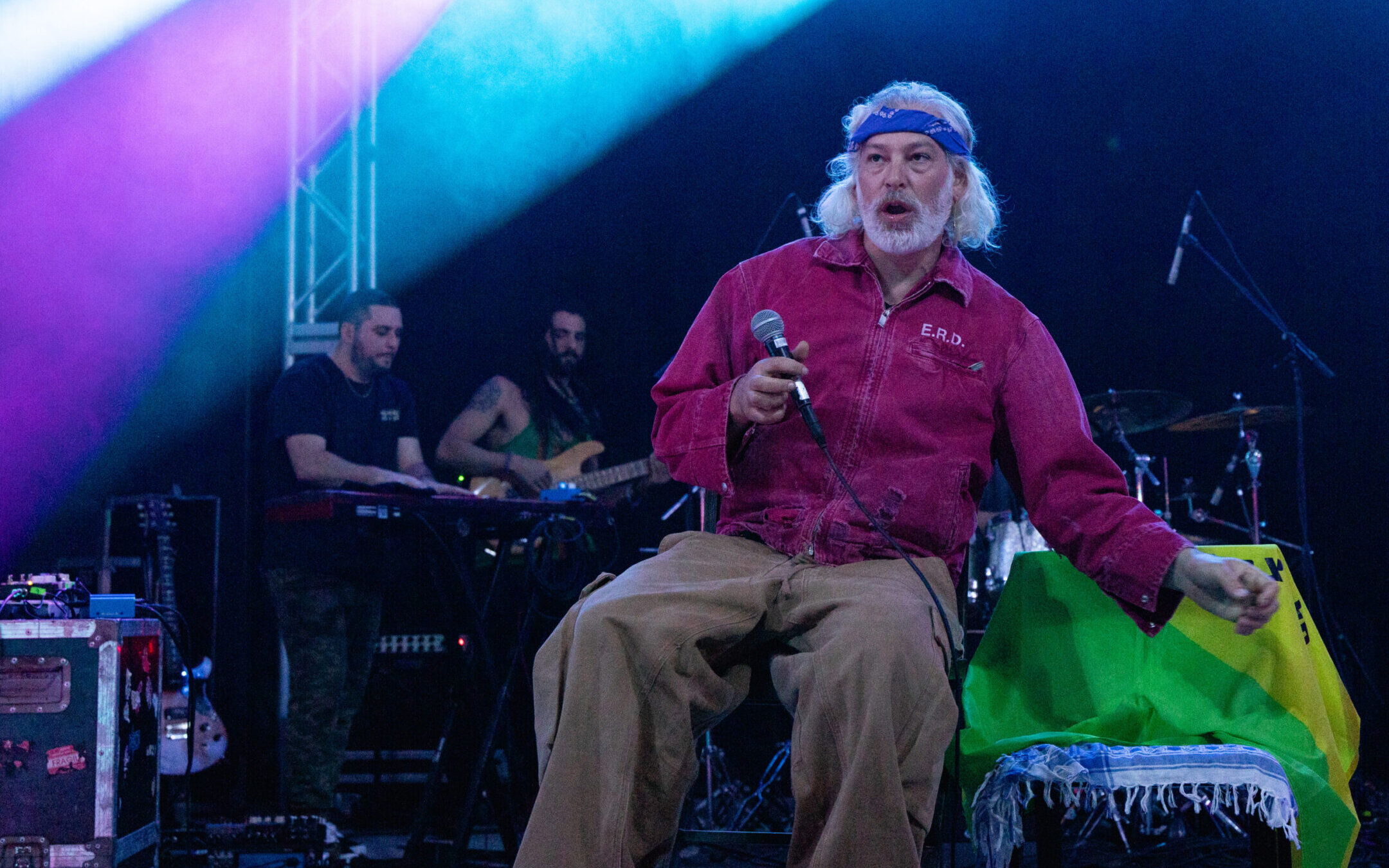Jewish frontman of heavy metal band Disturbed raises $29K for private security for Matisyahu after pro-Palestinian protests
The GoFundMe has already surpassed its goal of $25,000

Matisyahu performs in concert during the “Hold The Fire Tour” at Stubb’s Waller Creek Amphitheater in Austin, Texas, Feb. 10, 2024. An Israeli flag and a flag of an Israeli army unit, Golani, are visible on the chair next to him. (Rick Kern/Getty Images)
(JTA) — David Draiman, the Jewish frontman of heavy metal band Disturbed, is raising money to provide private security for Matisyahu after the Jewish reggae singer had two venues cancel on him in the face of pro-Palestinian protests.
“I’m raising funds to provide security for our brother @matisyahu,” Draiman, the heavy metal singer, wrote on X, formerly Twitter. “Him and his family have been relentlessly harassed during his current tour. Let’s help give him some security and safety in this difficult time.”
The fundraiser, launched on Thursday, Feb. 22, had already raised more than $29,000 by the following Monday, surpassing its $25,000 goal. On the GoFundMe page, Draiman wrote that his management team reached out to Matisyahu upon learning of the cancellation of his shows in Arizona and New Mexico earlier this month. Both venues where he was slated to perform canceled after they were targeted by pro-Palestinian protesters.
“I couldn’t let that stand,” Draiman wrote on the GoFundMe page about the cancellations. “Couldn’t let him and his family continue to be terrorized, so this campaign was started. All funds will be wire transferred to Matisyahu’s management team to pay for a private security detail for him and his family for the remainder of his current tour.”
Matisyahu, like Draiman, is an outspoken pro-Israel activist on social media and elsewhere. Both have been particularly vocal supporters of Israel since Hamas’ Oct. 7 attack on the country and the ensuing war in Gaza.
“After Oct. 7, it’s not religious per se, but there is this strange pull back to being Jewish and feeling Jewish, of wanting to be connected to other Jews and Israel and speaking out about what’s happening and writing songs about it,” Matisyahu told the Jewish Journal of Los Angeles in early February.
Best known for his 2008 peace anthem “One Day,” Matisyahu has faced backlash for his Israel activism before. He was temporarily ousted from a Spanish music festival after refusing to publicly back the establishment of a Palestinian state. Matisyahu was re-invited to the festival, and festival organizers apologized for the incident.
He performed “One Day” at the massive pro-Israel rally in Washington, D.C. in November.
In a statement he shared on Instagram on Feb. 15, following the cancellations in the Southwest, Matisyahu said he had offered to pay for additional staffing and security for his show at the Rialto Theatre in Tucson, Arizona, but had been turned down.
“They do this because they are either antisemitic or have confused their empathy for the Palestinian people with hatred for someone like me who builds empathy for both Israelis and Palestinians,” he wrote. “It truly is a sad day when dialogue with those you disagree with is abandoned for hate-mongering and silencing artistic expression.”
Instead of the show at the Rialto Theatre, Matisyahu put on a free show limited to an audience of 300 at another venue in Tucson, where they collected donations for the Hostage and Missing Families Forum, which advocates for the release of hostages held by Hamas in Gaza.
The show was part of his “Hold the Fire” tour, which continues through August. Draiman’s band, Disturbed, is also on tour.
On Thursday, Matisyahu performed at the UC Theatre in Berkeley, where a small pro-Palestinian protest gathered outside the theater. (The theater has no relation to the University of California, Berkeley.)
In a statement to J. the Jewish News of Northern California, the UC Theatre said that it had coordinated with Berkeley’s mayor’s office and police department to provide security for the event.
This article originally appeared on JTA.org.
A message from our CEO & publisher Rachel Fishman Feddersen
I hope you appreciated this article. Before you go, I’d like to ask you to please support the Forward’s award-winning, nonprofit journalism during this critical time.
We’ve set a goal to raise $260,000 by December 31. That’s an ambitious goal, but one that will give us the resources we need to invest in the high quality news, opinion, analysis and cultural coverage that isn’t available anywhere else.
If you feel inspired to make an impact, now is the time to give something back. Join us as a member at your most generous level.
— Rachel Fishman Feddersen, Publisher and CEO